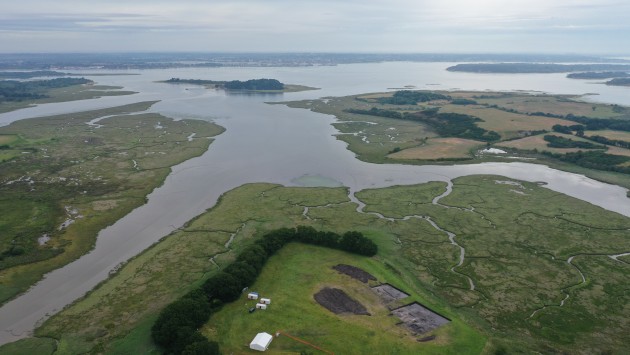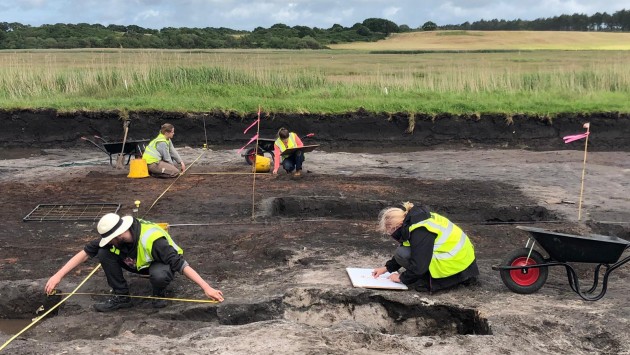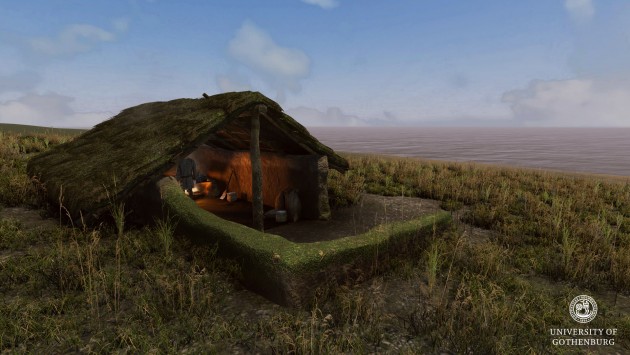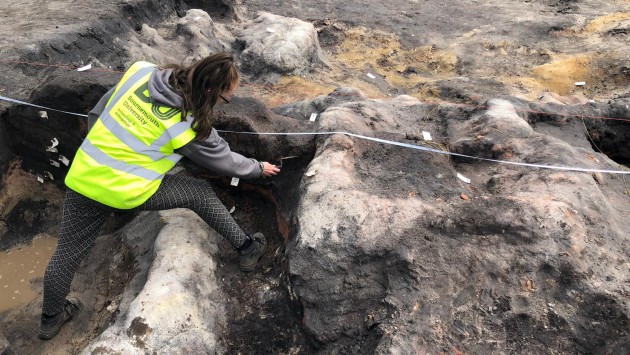Staff and students from Bournemouth University’s department of Archaeology, Anthropology and Forensic Science are excavating a lost medieval complex at Wytch Farm, near to Corfe Castle.
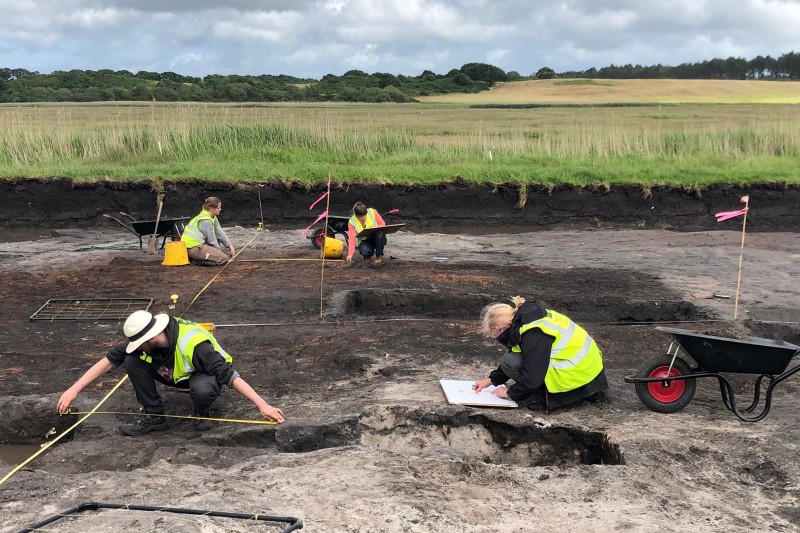
The site features numerous workshops and industrial architecture that includes buildings, terraces and salt boiling hearths. The 2019 excavations have revealed an extensive array of previously unknown industrial remains that suggest that the site was a significant production centre which included a complex workshop that was burnt to the ground in a catastrophic fire shortly before the Norman conquest.
Project Director and Lecturer in Archaeology at Bournemouth University, Dr Derek Pitman, said “The scale of the site is quite staggering. We began our excavations in 2018 and thought we were dealing with a relatively small saltworking community. This year’s work has revealed a much greater extent of activity than expected. This now beautiful landscape would have looked much more like an industrial wasteland at its peak.”
Radiocarbon dates from the site show that it was in use in the 10/11th century - just before the Norman conquest. The date places the site in an important period in British history, a time of power consolidation and rivalries between church and state. The site at Wytch Farm would have been an important source of monastic wealth, making it central to Britain’s real-life Game of Thrones.
“The landscape on the fringes of Poole Harbour was a significant hub during later prehistoric and early historic periods. There is evidence of large scale resource exploitation and industry from the Iron Age, through Edward I’s failed “new town” urbanisation project, later medieval clay mining, to modern oil extraction. The character of the landscape we see today is wildly different to the Poole Harbour of the past,” said Harry Manley, Project Co-Director.
The excavation is part of Bournemouth University’s Productive Landscapes, Archaeological Communities and their Environs (PLACE) Project that seeks to understand the relationship between ancient communities and their surrounding landscape of resources.
The wider programme of investigation includes a range of trial trenches and surveys aimed at understanding the interface between terrestrial and maritime zones in Purbeck and Poole Harbour.
Poole Harbour has been a port of trade for hundreds of years. It was significant in later prehistory, evidenced by the green island causeway, and developed into a major port in the Medieval Period.
The harbour was used extensively by the Romans and witnessed invasions by the Vikings. Throughout later prehistory and early historic periods, the harbourside areas were host to a variety of industrial communities producing ceramic, salt and metalwork.
The project will continue post-excavation, with fieldwork throughout the year.
A public open day - which includes trench tours, experimental archaeology demonstrations and medieval finds talks - takes place on Sunday 7 July. The drop-in day runs from 11am-4pm at the site in Wytch Farm, near Corfe Castle, BH20 5JR. You can find out more on the PLACE Field School Facebook page.
